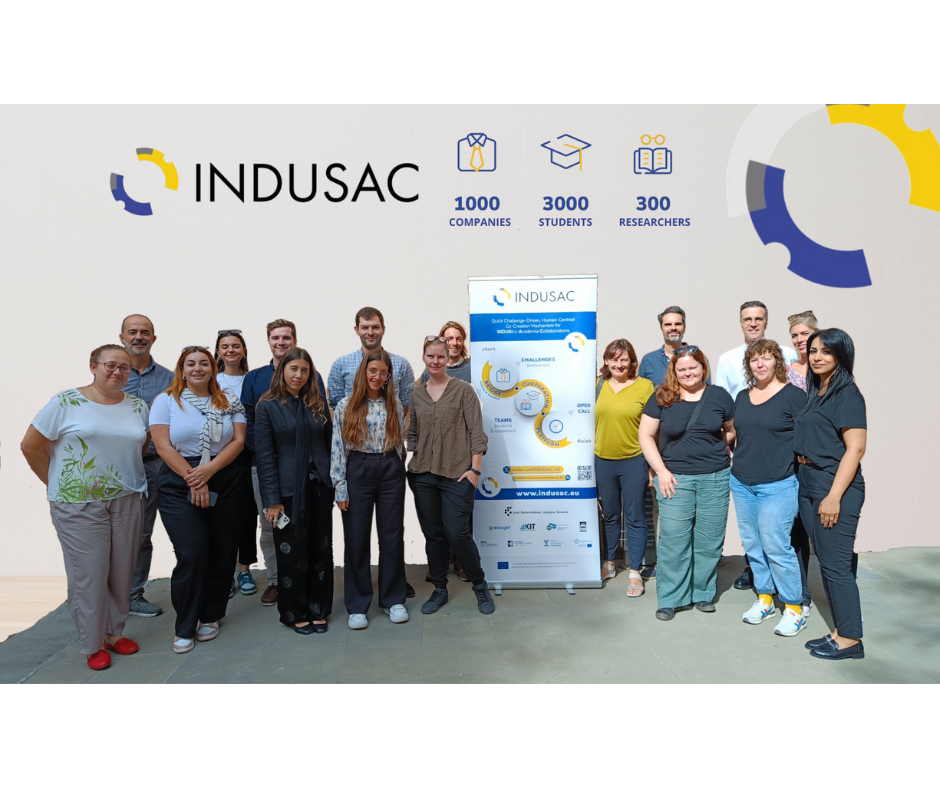---
This article was originally published on April 21, 2020, by Dr. Sheetal Menon on the digital media forbesindia.com. The article has been replicated on Innoget's Innovation Blog by Innoget's Editorial Staff for information purposes.
---
There is a need for collective and coordinated scientific undertakings on a global scale to rapidly expedite the development pipeline for drugs, vaccines, and diagnostics
“We need our collective knowledge, insight, and experience to answer the questions we don’t have answers to, and to identify the questions we may not even realize we need to ask”, rightly stated by WHO Director-General Dr. Tedros. While members of the scientific community are working endlessly and tirelessly to develop prophylactic (for prevention) and therapeutic (for cure) options to contain the pandemic, notably what Dr. Tedros emphasized was the need for collective and coordinated scientific undertakings on a global scale to rapidly expedite the development pipeline for drugs, vaccines, and diagnostics. This isn’t the first time WHO has vocally advocated for open and collaborative endeavors from scientists and researchers irrespective of their national and organizational affiliation.
 Let us rewind to the 2002-03 SARS outbreak (also a coronavirus) that quickly escalated to an emerging infectious disease of global consequence. Since its emergence in November 2002 in Guangdong Province of China, the epidemic caused over 8000 cases and almost 800 deaths affecting 26 countries . By early March 2003, the WHO swiftly enlisted a consortium of institutions involved in SARS research – a multidisciplinary team of scientists, researchers, and physicians from the US, Canada, China, EU, Singapore, among other nations. To encourage open sharing among academic competitors, all participants worked within a dedicated network, where technical information was shared based on predefined rules of confidentiality and data sharing. Any scientific data could be shared outside the network only after approval from the lab/institute from which the data originated. The SARS vaccine development was heralded as an exemplary case study for international scientific collaboration.
Let us rewind to the 2002-03 SARS outbreak (also a coronavirus) that quickly escalated to an emerging infectious disease of global consequence. Since its emergence in November 2002 in Guangdong Province of China, the epidemic caused over 8000 cases and almost 800 deaths affecting 26 countries . By early March 2003, the WHO swiftly enlisted a consortium of institutions involved in SARS research – a multidisciplinary team of scientists, researchers, and physicians from the US, Canada, China, EU, Singapore, among other nations. To encourage open sharing among academic competitors, all participants worked within a dedicated network, where technical information was shared based on predefined rules of confidentiality and data sharing. Any scientific data could be shared outside the network only after approval from the lab/institute from which the data originated. The SARS vaccine development was heralded as an exemplary case study for international scientific collaboration.
Coordination was, nonetheless, a challenging task for WHO to achieve, given that several research groups working in this area simultaneously filed patent applications (more than 160 applications) on viral sequences . A scenario akin to the ‘tragedy of anticommons’ – fragmented intellectual property (IP) ownership among multiple players with competing interests – would have led to a coordination breakdown. This would essentially mean higher transaction costs and delays resulting from licensing agreements, royalties, and negotiations among different parties. In a preemptive move, the WHO SARS Consultative Group affirmed: ‘For continued progress against SARS, it is essential that we nurture the spirit of the unprecedented, global collaboration that rapidly discovered the novel virus and sequenced its genome’. Their endeavor was to ensure that patent regimes stimulate research and do not hinder international scientific cooperation. To this end, key IP holders expressed their willingness to form a patent pool as a possible solution to resolve fragmentation issues and competing claims to SARS sequences . In simple terms, patent pools are equivalent of ‘supermarkets’ for making essential IP rights available on a non-exclusive and non-discriminatory basis.
In the past, patent pooling mechanisms have been exploited for HIV, Hepatitis C, and Tuberculosis related drug development to make access faster and cheaper. The UNITAID (UN-backed funding agency in healthcare innovation) formed a patent pool for antiretroviral drugs for HIV/AIDS; Medicines Patent Pool signed a license agreement with pharma giant Gilead Sciences for sharing IP on HIV drugs; MPEG LA created a patent pool Librassay® of over 400+ patents in genetic diagnostic tests . Pooling IP could be a win-win situation, serving the interests of both public and private parties, whilst ensuring that greater good is ultimately achieved.
Lessons learnt for COVID-19?
With no approved vaccine or drug treatment in sight for at least 12-18 months, countries are struggling for access to diagnostic, therapeutic and prophylactic supplies to respond to the COVID-19 crisis. Given the gravity of present circumstances, experts recommend voluntary pooling of IP rights by pharma and healthcare companies along with research institutions, to stimulate international collaboration and accelerate research efforts towards potential solutions. The WHO and UNITAID welcomed Costa Rica’s proposal earlier this month on global pooling mechanism of IP on biomedical data and know-how on essential drugs, vaccines, sequences, and medical technologies .
Members of the European Parliament have urged the European Commission to grant non-exclusive licenses to multiple manufacturers for rapid global scale-up and affordable products . The GISAID initiative (Global Initiative on Sharing All Influenza Data) was created to allow scientists to share and access influenza-related data while ensuring ownership over any IP rights residing in such data via the open access EpiFlu™ database . Technology interventions such as AI and blockchain is now being harnessed, with companies collectively devoting immense computing power to scientists for rapidly screening drug and vaccine candidates. Microsoft and C3.ai (California-based AI company) have announced a public-private consortium with MIT, Carnegie Mellon, Princeton, and Universities of California, Chicago, Illinois, to provide scientists with funding and access to advanced supercomputers for solutions to the pandemic . The US Food and Drug Administration (FDA) and the European Medicines Agency (EMA) are also undertaking regulatory convergence strategies to streamline prevention and treatment response . Measures include data sharing and frequent communication on preclinical and clinical risk mitigation strategies among global regulatory bodies.
Just as scientists are building on previously accrued research on coronaviruses (SARS/MERS), national leaders, policy and decision-makers must also leverage learnings from past experiences for swift and coordinated actions to tackle the on-going crisis. Working collectively is now a global imperative to nurture scientific collaborations and support rapid research without duplication of efforts. A saying by Ryunosuke Satoro aptly concludes my thoughts, “Individually, we are one drop. Together, we are an ocean.”
---
Keep up to date on Innoget's initiative to beat Covid-19 by following the dedicated channel where new innovation needs, novel technologies, news, and events are posted daily.





